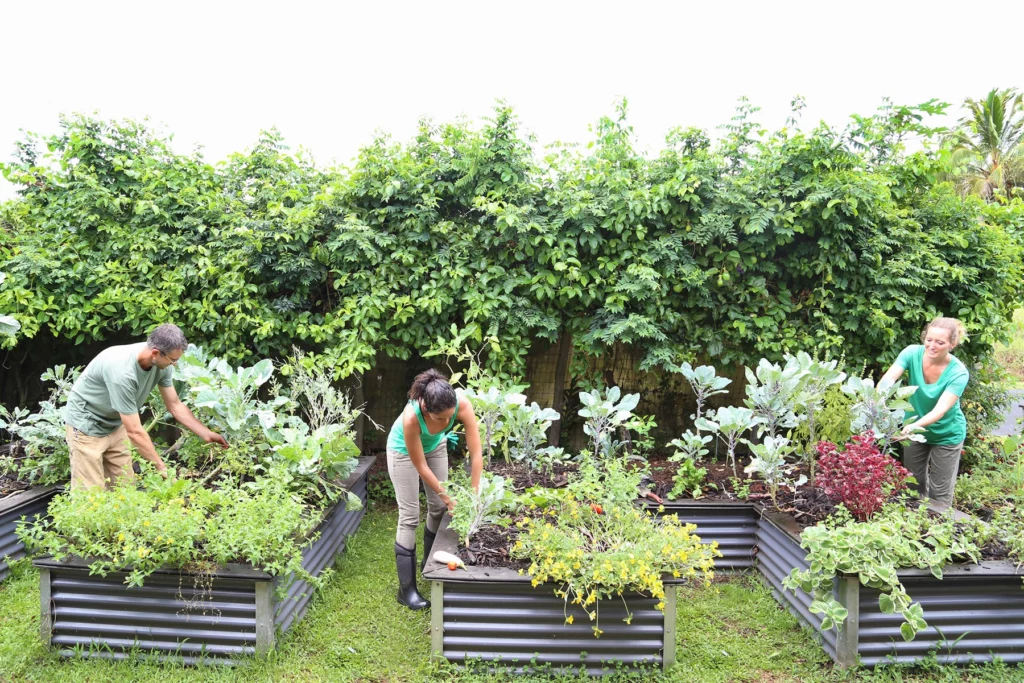An increasingly popular trend is to make a community garden. But what’s the advantage?
According to a North Carolina study, community gardeners ate more fruits and vegetables, got more fresh air and exercise, lowered stress, built relationships, developed a more positive outlook, engaged young people, and their participation led to an interest in other neighborhood activities.
A community garden is a plot of land that has been given dedicated use for a period of seasons or years. It can be divided into sections and rented for personal use, or truly worked by the whole community to feed the community under the old adage that many hands make light work.
Ask around. Would your neighbors be interested in a community garden? Would it be rented or communal? What would be grown, and how would it be dispersed if communal? How will decision-making and funding be done? Who would volunteer time and resources to till the land and build borders or containers? What young people would be interested in helping? Where is your source for watering?
Contact your local Georgia agricultural cooperative extension office for advice on how to plan, space out, build and maintain your garden. You may want to build a few raised container garden plots for the elderly or wheelchair-bound to enjoy without so much bending down. Also consider a children’s garden spot. Call the Fulton County extension office at 404-613-5757, Cobb at 770-528-4070, or DeKalb at 404-298-4080.
Next, locate an unused plot of land that gets at least six hours of sunlight, and contact the owner for permission, or that owner might be yourself. Find out if there are any county regulations, or permits required. For example, there may be an ordinance against using manure.
If you have an HOA, present your completed plan to the board. Expect them to draw up rules and indemnity waivers, and to want the space to be beautified in some way – perhaps with a fence, flower border along the curb, and bench seating. Be aware that access to any garden on their property may be added to your dues to pay for grounds upkeep and perhaps a sprinkler system. If an HOA gets behind it, though, the garden will become a permanent delightful addition to the community.
Rules might include hours of operation, what can be grown, what chemicals can be used, and not to leave trash or tools laying around. Fencing will be especially important if the food will attract wild animals.
Permissions granted, garden started. Now what? Interest may be slow at first. Yet over time, the community may come to appreciate their own garden, and see the neighborhood-building qualities in it. You can help by putting up a social page showing garden activities, and building excitement about the harvest.
Hold special garden-related events to draw the neighbors in, such as Peter Rabbit story time, a weekend farmer’s market, or the biggest pumpkin contest. How can you make gardening fun for everyone? It’s a great added advantage to get to know the neighbors, and to grow community spirit.

